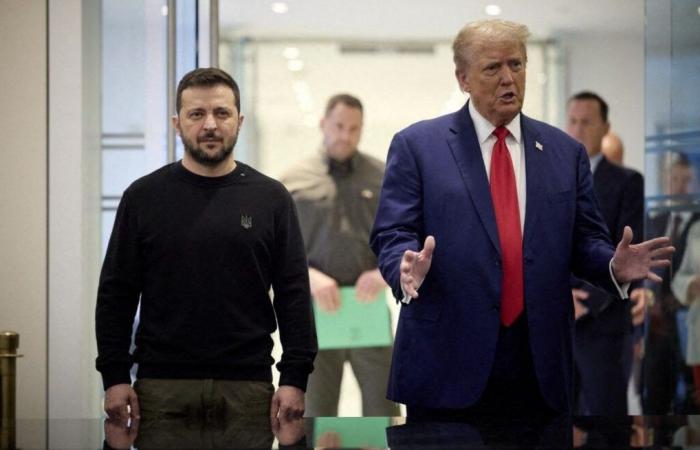
NATO’s European allies want to be reassuring after Donald Trump’s victory, but the return to the White House of the unpredictable billionaire raises serious concerns about the future of the Alliance and the future of support for the Ukraine.
“His leadership will once again be a key element in keeping our Alliance strong. I look forward to working with him again to advance peace by strengthening NATO,” Secretary General of this organization Mark Rutte quickly reacted on Wednesday morning.
The Dutchman, who crossed paths with Donald Trump several times during his first term, has made many reassuring remarks since his arrival at the head of the Alliance at the beginning of October. “Stop worrying about a Trump presidency!” », he said a few weeks ago.
But behind the soothing words, everyone still remembers the threats made in February by the American billionaire: if you don’t pay more, cope with the Russian threat.
In addition to a disengagement of the United States in Europe, they fear a slowdown, or even a cessation, of American military support for Ukraine.
Donald Trump has repeatedly denounced the billions spent by his country to help kyiv, promising to end the war in 24 hours.
Here again, Mark Rutte insists that this will not be the case.
“I know he completely understands and agrees with me that this war in Ukraine is not just about Ukraine, but also about the safety and future security of the United States,” he said. -less than a month ago following a meeting with the Ukrainian head of state Volodymyr Zelensky.
For many diplomats, however, these remarks are primarily aimed at Donald Trump, who is notoriously sensitive to signs of recognition.
Basically, the concern is real.
“Unpleasant but not catastrophic”?
“There are two theories,” summarizes Camille Grand, a former NATO official and researcher at the European Council for International Relations (ECFR), interviewed by AFP.
The first? “It’s going to be like the first time, unpleasant but not catastrophic. » The second? “Today we are in a different world with a fundamentally Trumpist Trump entourage who shares his doubts about alliances, support for Ukraine…”
And to recall a central element: during Donald Trump’s first term, there was “no war in Europe”.
“If Trump begins negotiations with Russia, it will be bargaining, which will not be based on values and principles, and this could lead to a catastrophic result for Ukraine and for Europe,” judges another ex. -responsible for the Atlantic Alliance.
“If the United States withdraws its aid, Europe cannot immediately replace it,” recalls a NATO diplomat.
Faced with this possible American withdrawal, certain allies insist on the need for unity and strategic resurgence.
“We will have to find ways to work on our common interests but, fundamentally […]the answer is with us,” insisted French Minister for European Affairs Benjamin Haddad on Wednesday morning.
Challenges
And some even see the return of the real estate magnate as an opportunity for a start.
“Why be scared of Trump now? », asks a European diplomat in Brussels. “It’s going to be difficult, but at least he’ll inject some energy into the Alliance. »
NATO also claims to have partly responded to the challenges launched by Donald Trump.
She has taken over the coordination of military aid to Ukraine, until then in the hands of the Americans, and, above all, she regularly highlights the budgetary efforts of European countries, accused by the billionaire of being “deadbeats”. “.
Twenty-three of the 32 countries in this organization now devote 2% of their gross domestic product (GDP) to their military spending when there were only a handful ten years ago.
When the Republican takes office on January 20, “he will find a stronger, more united and more important Alliance,” Mark Rutte assured Wednesday.
“The Europeans are more serious” on this point, but are still not “ready to take charge of most of Europe’s security and support for Ukraine,” Mr. Grand recalls.





